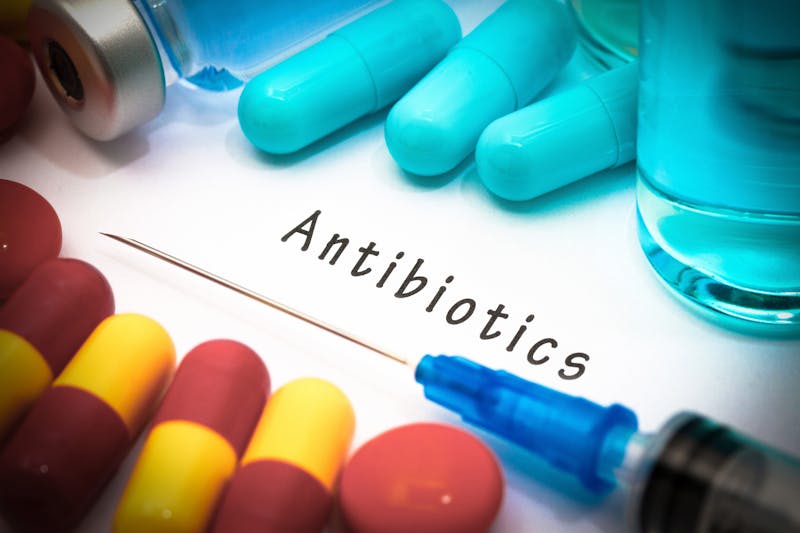
Antibiotics are drugs used to fight many infections caused by bacteria. Some antibiotics are effective against only certain types of bacteria.
Others can effectively fight a wide range of bacteria. Antibiotics do not work against viral infections.
When used correctly, antibiotics are extremely useful and important medicines. They fight certain infections and diseases caused by bacteria. Well-known antibiotics are penicillin, tetracycline, streptomycin, chloramphenicol, and sulfa drugs, or sulfonamides.

The different antibiotics work in different ways against specific infections. All antibiotics have dangers in their use, but some are far more dangerous than others. Take great care in choosing and using antibiotics.
The use of all medicines should be limited. But this is especially true of antibiotics, for the following reasons:
1. Poisoning and reactions. Antibiotics not only kill bacteria, but they can also harm the body, either by poisoning it or by causing allergic reactions. Many people die each year because they take antibiotics they do not need.
2. Upsetting the natural balance. Not all bacteria in the body are harmful. Some are necessary for the body to function normally.
Antibiotics often kill good bacteria along with the harmful ones. Babies who are given antibiotics sometimes develop fungus or yeast infections of the mouth or skin. This is because the antibiotics kill the bacteria that help keep fungus under control.

For similar reasons, persons who take ampicillin and other broad-spectrum antibiotics for several days may develop diarrhea. Antibiotics may kill some kinds of bacteria necessary for digestion, upsetting the natural balance of bacteria in the gut.
3. Resistance to treatment. In the long run, the most important reason the use of antibiotics should be limited is that when antibiotics are used too much, they become less effective.
When attacked many times by the same antibiotic, bacteria become stronger and are no longer killed by it.
They become resistant to the antibiotic. For this reason, certain dangerous diseases like typhoid are becoming more difficult to treat than they were a few years ago.
In some places, typhoid has become resistant to chloramphenicol, normally the best medicine for treating it. Chloramphenicol has been used far too much for minor infections, infections for which other antibiotics would be safer and work as well, or for which no antibiotic at all is needed.

Throughout the world, important diseases are becoming resistant to antibiotics largely because antibiotics are used too much for minor infections. If antibiotics are to continue to save lives, their use must be much more limited than it is at present.
This will depend on their wise use by doctors, health workers, and the people themselves.
For most minor infections antibiotics are not needed and should not be used. Minor skin infections can usually be successfully treated with mild soap and water, or hot soaks, and perhaps painting them with gentian violet.
Minor respiratory infections are best treated by drinking lots of liquids, eating good food, and getting plenty of rest.